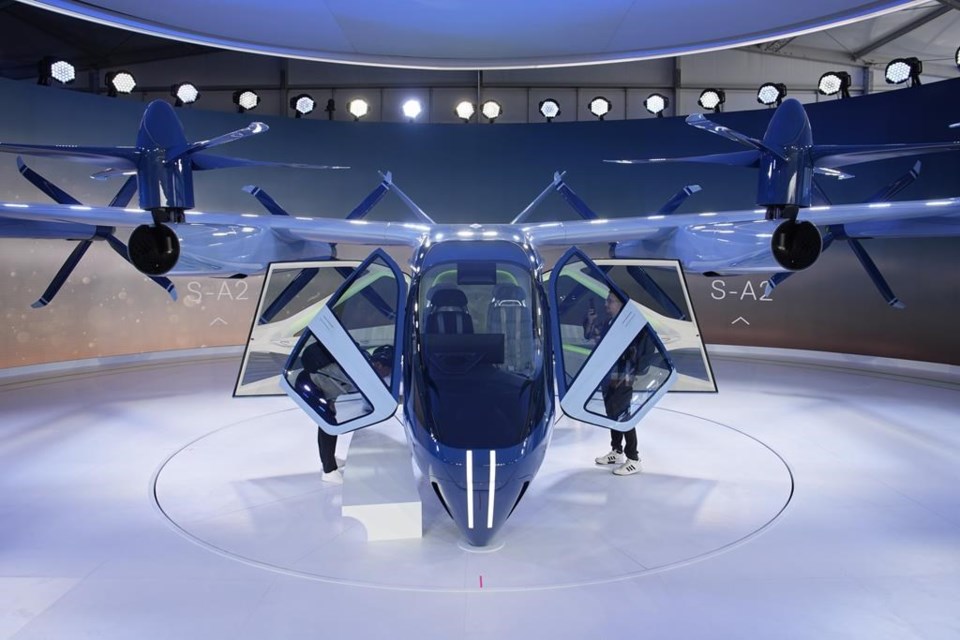CES provides an annual insight into where and how cutting-edge innovations will reshape how people work, study, communicate and, in many cases, how they’ll drive. This year CES saw a number of automakers present concept vehicles that seem both years into the future and on the very cusp of production.
From flying vehicles and AI-powered voice assistants to the latest in EVs, CES 2024 offers a peek into what you’ll be driving — or what might be driving you — in the years ahead. The automotive experts at Edmunds have rounded up some of this year’s most notable automotive debuts.
ARTIFICIAL INTELLIGENCE COMES TO YOUR CAR
Artificial Intelligence, or AI, is poised to reshape countless aspects of daily life. While there are plenty of concerns and opportunities involved, it’s clear that automakers will be moving ahead to use AI for what they hope will be a more helpful and optimistic driving future.
Mercedes-Benz, for its part, debuted its next-generation AI virtual assistant software. The upcoming version of Mercedes’ MBUX infotainment interface, dubbed MB.OS, will feature conversational voice commands and far more nuanced responses. For example, by monitoring voice instructions and driving behavior, the AI system can determine if a driver is hurried and stressed or cruising along carefree. A version of MB.OS is set to debut in Mercedes’ upcoming electric-powered CLA sedan.
Another German automaker, Volkswagen, says it will integrate ChatGPT, the popular AI chatbot, into its vehicles to provide more voice interaction beyond what’s currently available. For example, the car’s existing voice command features will work for things like navigation, climate control or general knowledge requests. But something it can’t handle will be forwarded anonymously to ChatGPT. ChatGPT will then respond in a seamless Volkswagen voice and style. For now, Volkswagen has not said when this functionality will be available on its vehicles sold in the United States.
HONDA’S HEADED BACK TO THE FUTURE
Reliable, efficient and out-of-this-world wild. Which one of these descriptors is not often attributed to the practically minded Honda Motor Co.? In the near future, all of them look to apply to Honda’s upcoming lineup of electric vehicles, dubbed the 0 Series. Taking design cues from seemingly everything from a ground-hugging sports car to a 1980s-era Dustbuster vacuum cleaner, the Honda Saloon concept vehicle is a hint at the Japanese automaker’s EV strategy and upcoming designs.
With its wedge-shaped body, truncated tail and upward-swinging doors, the Honda Saloon is a head-turning sedan that hints at a production model due in 2026. It will also debut the latest in EV technology, such as a more efficient and longer-lasting battery pack. Just don’t expect that the Saloon’s glowing front grille, gullwing doors and yoke-style steering wheel are all part of the finished product.
ELECTRIC FLYING CARS PROMISE TO BECOME REALITY
Flying cars seem like something straight out of a science fiction movie, yet they were very much in the here and now at CES 2024. One of the most head-turning is the eVTOL Flying Car created by Chinese automaker XPeng. Equal parts low-lying supercar and high-flying helicopter, this wedge-shaped concept is wildly futuristic and entirely electric powered.
Notably, the company’s concept isn’t a flying car in the traditional sense. It doesn’t have wings and uses its electrically powered fans to produce lift and fly straight up. It can theoretically take off and land anywhere there’s room, making travel as a sort of gridlock-avoiding city vehicle more likely.
Another electric helicopter-like entry at the show was the Supernal S-A2. Supernal is notable for being an offshoot of Hyundai. The connection to the giant South Korean automaker certainly adds some plausibility to the S-A2 turning into reality. The S-A2’s specs aren’t mind-boggling, with a maximum range of just 25-40 miles, but that might be all you need for an aerial taxi.
Supernal says it hopes the S-A2 will be a production reality by 2028. Still, don’t get your hopes up too much that your daily commute is about to take flight. Wait-and-see is the best approach as other vital details such as price and success overcoming regulatory hurdles all remain very much up in the air.
_______
This story was provided to The Associated Press by the automotive website Edmunds.
Nick Kurczewski is a contributor at Edmunds and is on Twitter and Instagram
Nick Kurczewski, The Associated Press



